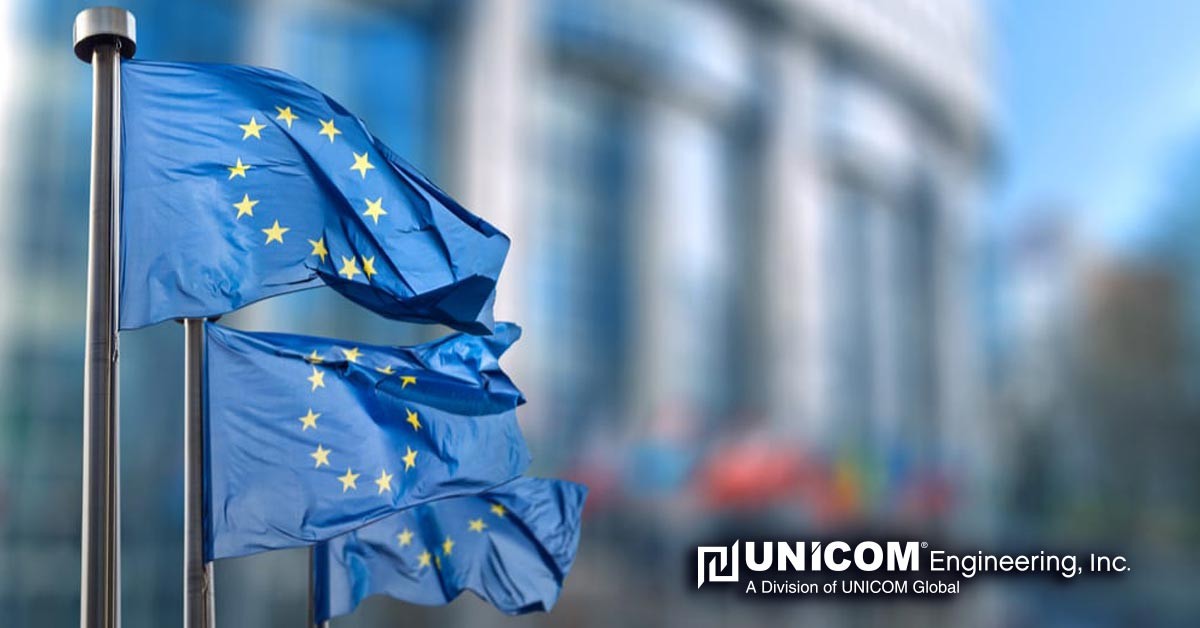Lot 9 continues to be a subject of interest and confusion to many in the industry. We’ve covered the topic previously in our How to Comply with Lot 9 regulations and Lot 9 Update blogs to get clients ready for what was to come. Now that Lot9 is here, we wanted to provide additional details and definitions for clarification and to avoid the unnecessary risk of non-compliance.
What is EU Lot 9?
As of March 1, 2020, servers and data storage products sold into the European Union (EU) and European Economic Area (EEA) are now required to comply with Lot 9 of the EU’s Ecodesign Directive (Directive 2009/125/EC). The Lot 9 Regulations are aimed at making energy-saving improvements in the server and data storage product categories over the next decade. While the scope of these rules is extensive, many solution providers in the server and data storage space may find that their products are exempt from Lot 9 requirements, depending on the intended use of their devices, among other distinctions. Therefore, it is critical to understand not only the Lot 9 requirements but also the definitions of various devices according to the legislation. Businesses can then take the necessary steps to successfully bring new products to market in the EU and EEA.
Scope of the Regulation and Product Exemptions
Article 1 of the Lot 9 legislation defines the subject matter of the Regulation as “servers and online data storage products.” For clarity, a list of products that do not fall under the Regulation is provided here per Article 1, Paragraph 2 of the legislation. Lot 9 regulation does not apply to the following products:
a) servers intended for embedded applications, b) servers classified as small scale servers in terms of Regulation (EU) No 617/2013, c) servers with more than four core processor sockets, d) server appliances, e) large servers, f) fully fault-tolerant servers, g) network servers, h) small data storage products, and i) large data storage products.
Some of these products have more obvious definitions than others. For those that commonly require further explanation, we offer the following:
Embedded applications are defined as software applications that permanently reside in an industrial or consumer device. Environmental controls for a manufacturing plant or other buildings would be an example.
A large server is defined as a resilient server shipped as a pre-integrated/pre-tested system that is housed in one or more full-frame racks and includes a minimum of 32 dedicated input/output slots.
Small data storage products are defined as having three or fewer hard drives, while large data storage products have more than 400 drives.
Servers vs. Server Appliances
The distinction between servers and server appliances is an important aspect that has led to some confusion. According to Lot 9’s definitions, servers are computing products designed to run user-installed operating systems and applications. In contrast, server appliances are not intended to execute user-supplied software. Instead, a third party such as the manufacturer or system integrator typically pre-installs these components, which are used to perform a specific function or set of related functions. Customers’ devices may fall into the server appliance category because their software is for a dedicated function such as security or video processing. These products are exempt from Lot 9 Regulations.
CE Certification and Declaration of Conformity
It is important to note that even though products such as server appliances are not required to adhere to the Lot 9 Regulations, they still must attain the CE certification mark before they can be marketed or sold in the EU and EEA. This mark indicates that a product conforms with the health, safety, and environmental protection standards of the EEA.
A declaration of conformity that provides the reasoning for a product’s exemption to Lot 9 Regulations is required before CE certification is granted to exempt products. Therefore, documenting the reason(s) why a product is exempt from the Lot 9 requirements is also highly recommended. Once the documentation shows evidence of a product being exempt, such as being a server appliance, the CE Declaration of Conformity needs to be amended to reflect the claimed exemption to the Eco-Design directive. UNICOM Engineering’s team of dedicated professionals with expertise in the nuances of the Eco-Design directive. The team also has extensive knowledge of the requirement of the Directives for CE marking, which can significantly streamline the CE certification process for our customers to ensure the go-to-market strategy is not delayed or disrupted.
Learn More
Selling servers or data storage equipment into the EU or plans to in the future must be adequately addressed in conformance with the new requirements detailed in Lot 9. The UNICOM Engineering Regulatory Compliance team is unwavering in our commitment to helping our customers meet all the design and manufacturing requirements necessary to bring their products to market. Adhering to global compliance standards is a fundamental pillar of our business. Our team acts as an extension of your business and continuously monitors requirements for countries around the world. Learn more about how the UNICOM Engineering team can assist you in navigating the global regulatory process by visiting our contact page or calling us at (800) 977-1010.
